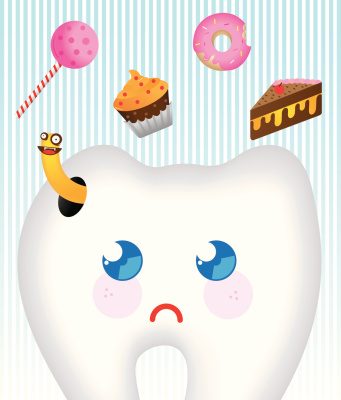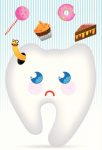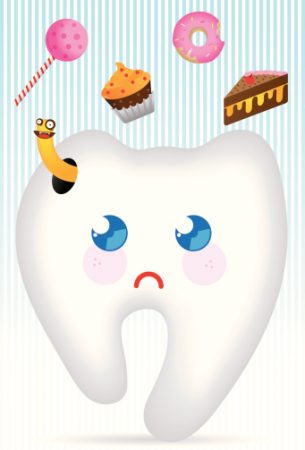
Did you know that dental cavities are one of the most expensive diseases to treat? Cavities can be extremely painful and may lead to gum disease, which has been shown to contribute to diabetes and respiratory diseases. They can also make it more difficult to eat a healthy diet, leading to poor nutrition.
Practicing proper oral hygiene such as brushing, flossing, and rinsing with fluoride all help prevent cavities. However, sometimes this is not enough. Some people are more susceptible to cavities. If you want to prevent cavities, making changes to the foods you eat can play a powerful role. Here are my top four tips to prevent cavities and preserve your healthy teeth:
1. Watch your intake of fermentable carbohydrates: This includes added and processed sugars. For example, you want to avoid crackers, chips, pretzels, cereals, breads, fruits, fruit juices, and sugar-sweetened beverages.
These carbohydrates are converted into acid by bacteria found on the plaque of the tooth. They feed the “bad” bacteria in the plaque, allowing them to grow and multiply. This promotes the breakdown of the enamel and is an early sign of tooth decay. Because the enamel acts as a safety net, once broken down, deterioration of the rest of the tooth is quick. The more often you consume these foods, the more likely you are to develop cavities. Prevent cavities by avoiding or limiting your intake of these foods.
2. Limit your consumption of sticky, chewy, and sugary foods: This includes candies, lollipops, toffees, sugar-containing gum, gummies, caramels, Skittles, cakes, ice cream, and cookies.
Again, as mentioned, these foods serve as a good source for the bacteria in your mouth and are responsible for breaking down the tooth. This can increase the acidity of the plaque and lead to early signs of tooth decay. Sticky and chewy foods in particular tend to stick to your mouth and spend a long time there, making them harder to clean, especially if you don’t floss. These chewy, sticky, and sugary foods attract more bacteria, which can break down your teeth and cause cavities.
3. Increase your intake of anticariogenic foods: People have increased their consumption of energy-dense foods and beverages and migrated away from nutrient-dense foods like milk and dairy products, which have shown to help prevent cavities. Consider replacing your sugar-sweetened beverages with milk or water and your energy-dense snacks with nutrient-dense ones, such as cheese. Consume these dairy treats in combination with your breads or crackers as they can help counter the negative effects of those fermentable carbohydrates. This is especially important at night.
4. Brush your teeth after meals: You’re used to brushing your teeth when you wake-up, but you actually should be brushing your teeth after breakfast, too—after every meal is best. Most importantly, brush at night. During the day, you have increased saliva production, which mobilizes the bacteria; this makes it more difficult for the plaque to form on the teeth and stick. However, at night, saliva production is decreased and all the foods consumed throughout the day stick to your teeth, promoting bacterial growth and leading to a breakdown of the teeth throughout the night.
Foods you eat first thing in the morning may stick around in your mouth until the late evening, before bed, when you brush again. It is not always convenient or possible to brush after each meal; rinsing your mouth with water or chewing a sugar-less gum has been shown to be effective. When you have a cavity, your tooth has an infection that demineralizes and destroys your hard tissue; thus, remineralization can help prevent cavities. Some sugar-free gums contain xylitol, a sugar alcohol which has been associated with a reduction in cavities and can help remineralize the teeth.
Following these tips can make all the difference. Don’t eat too many treats, or you’ll be treating your dentist with a generous sum of money for your cavities. Instead, prevent cavities and preserve your healthy teeth with these four easy tips.
Source(s):
Al-Dajani, M., et al., “Emerging science in the dietary control and prevention of dental caries,” Journal of the California Dental Association 2012; 40:799-804.
American Dietetics Association: Nutrition care manual. Chicago: ADA; 2009.[accessed 5 June 2013].














